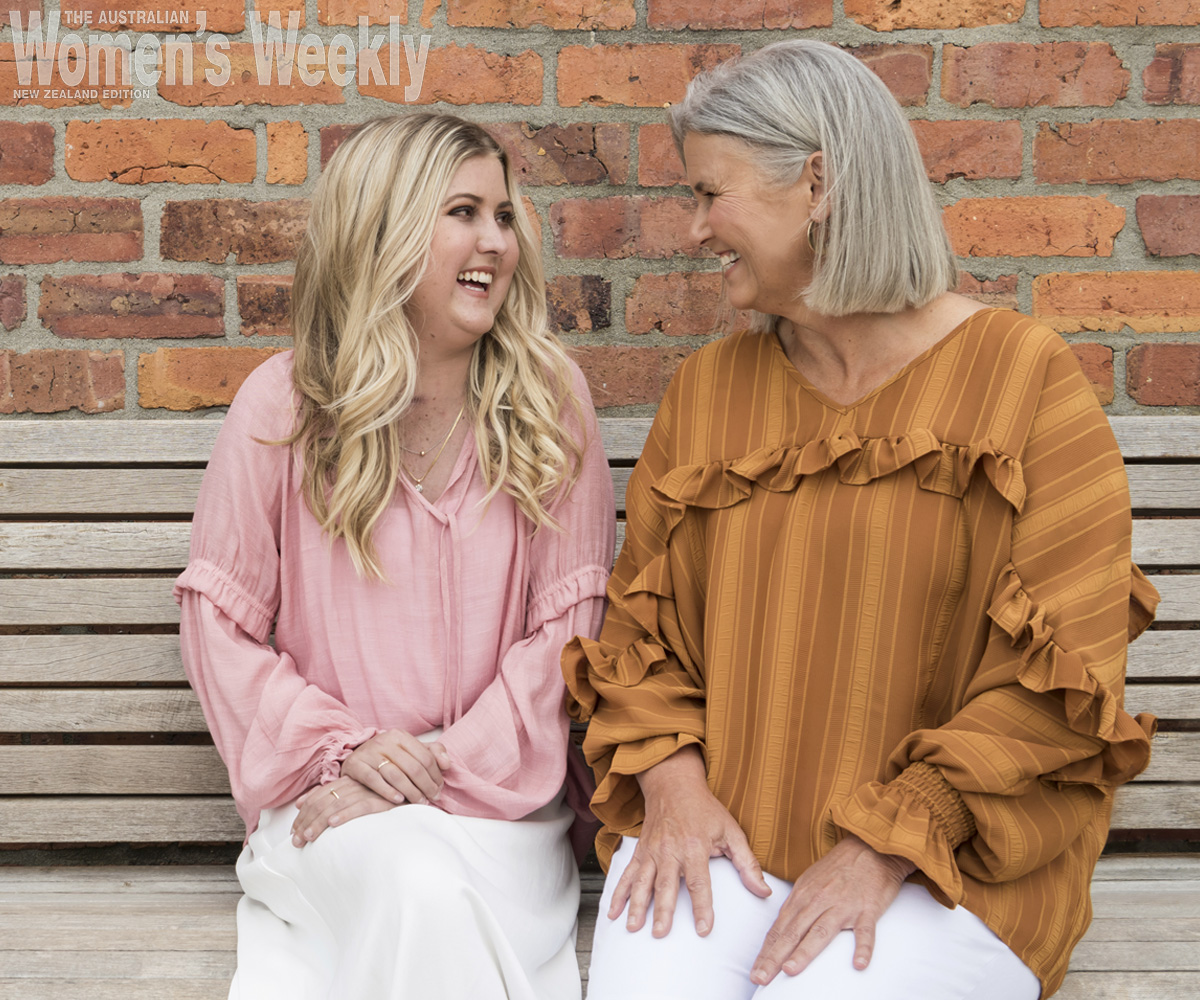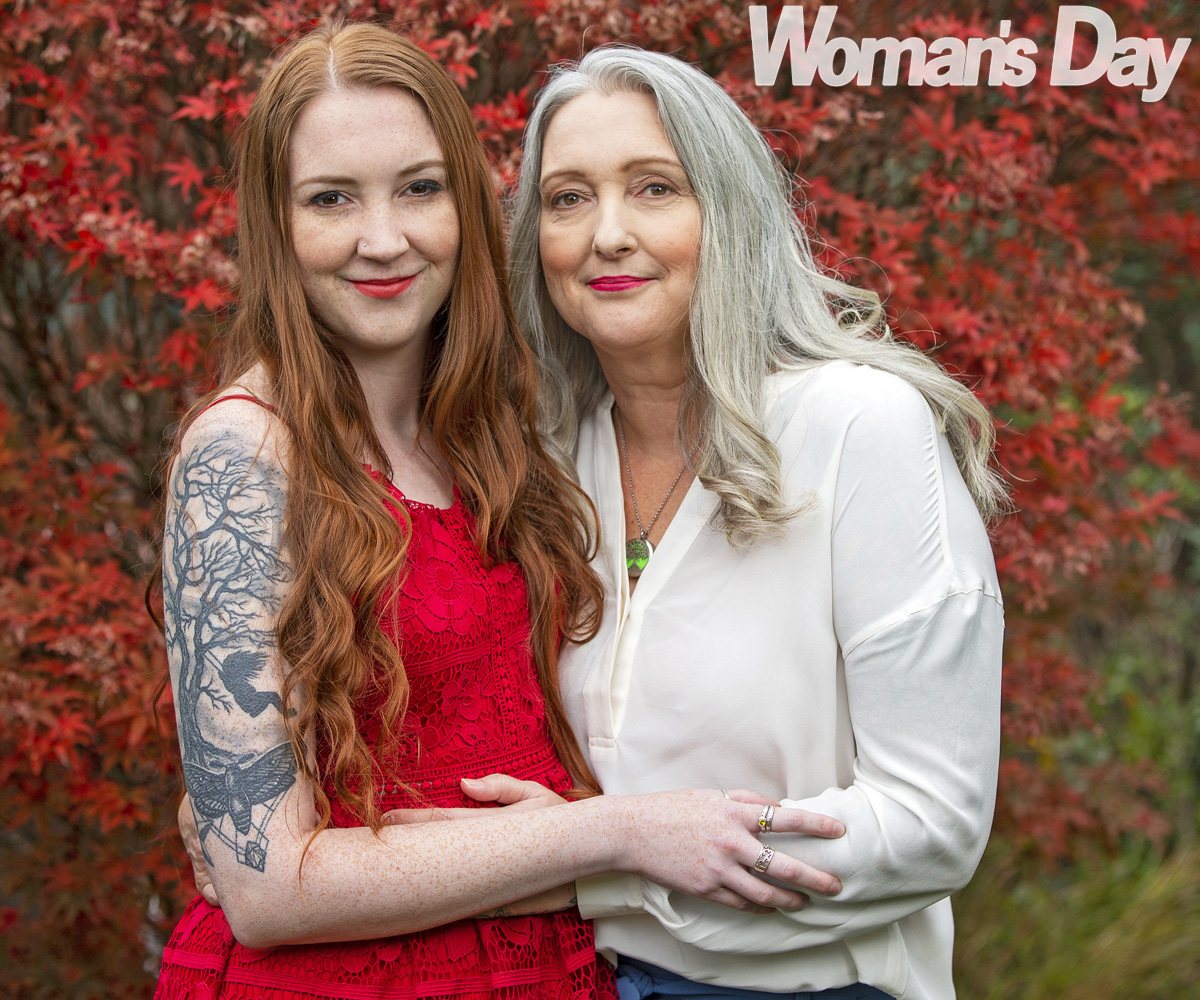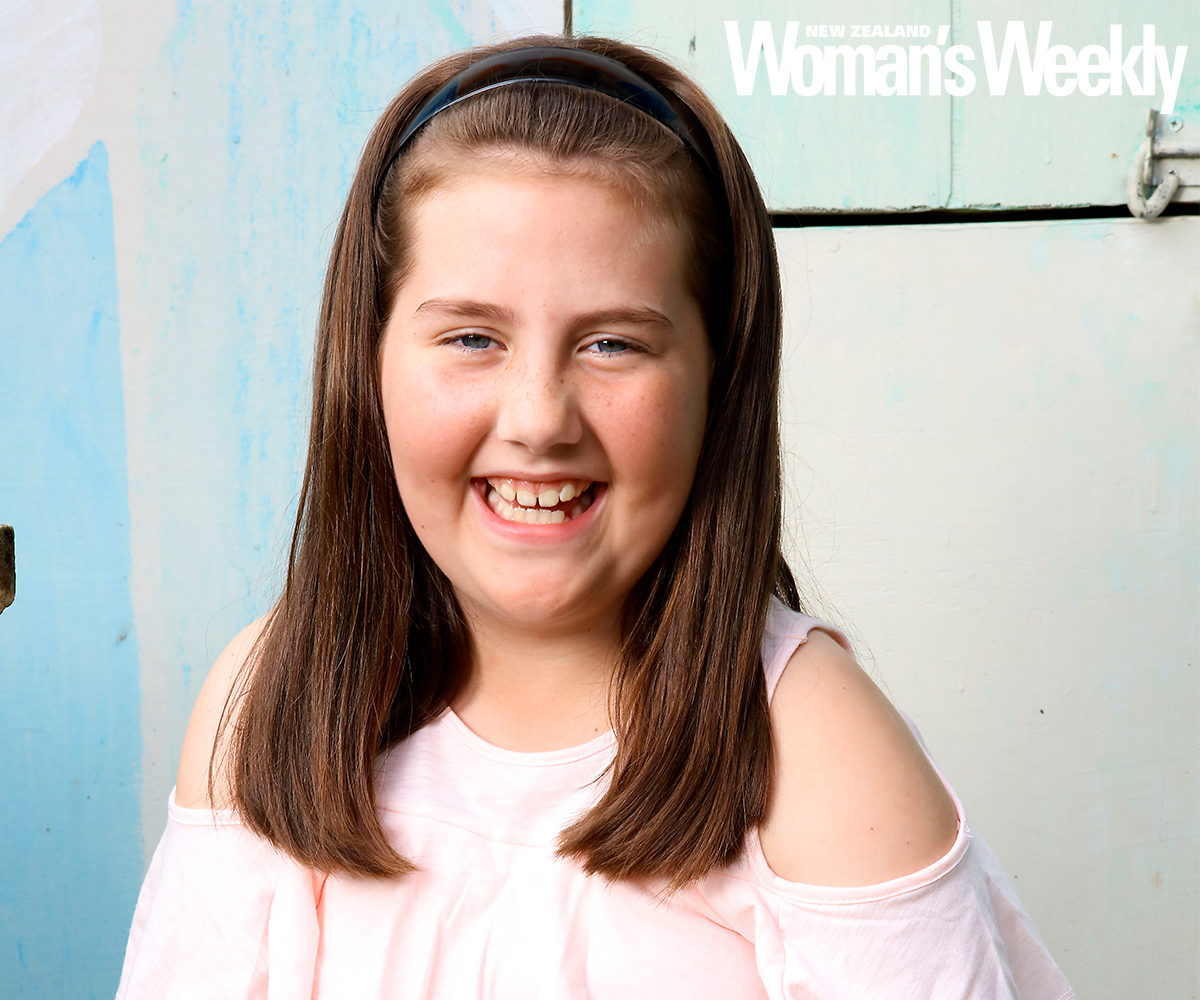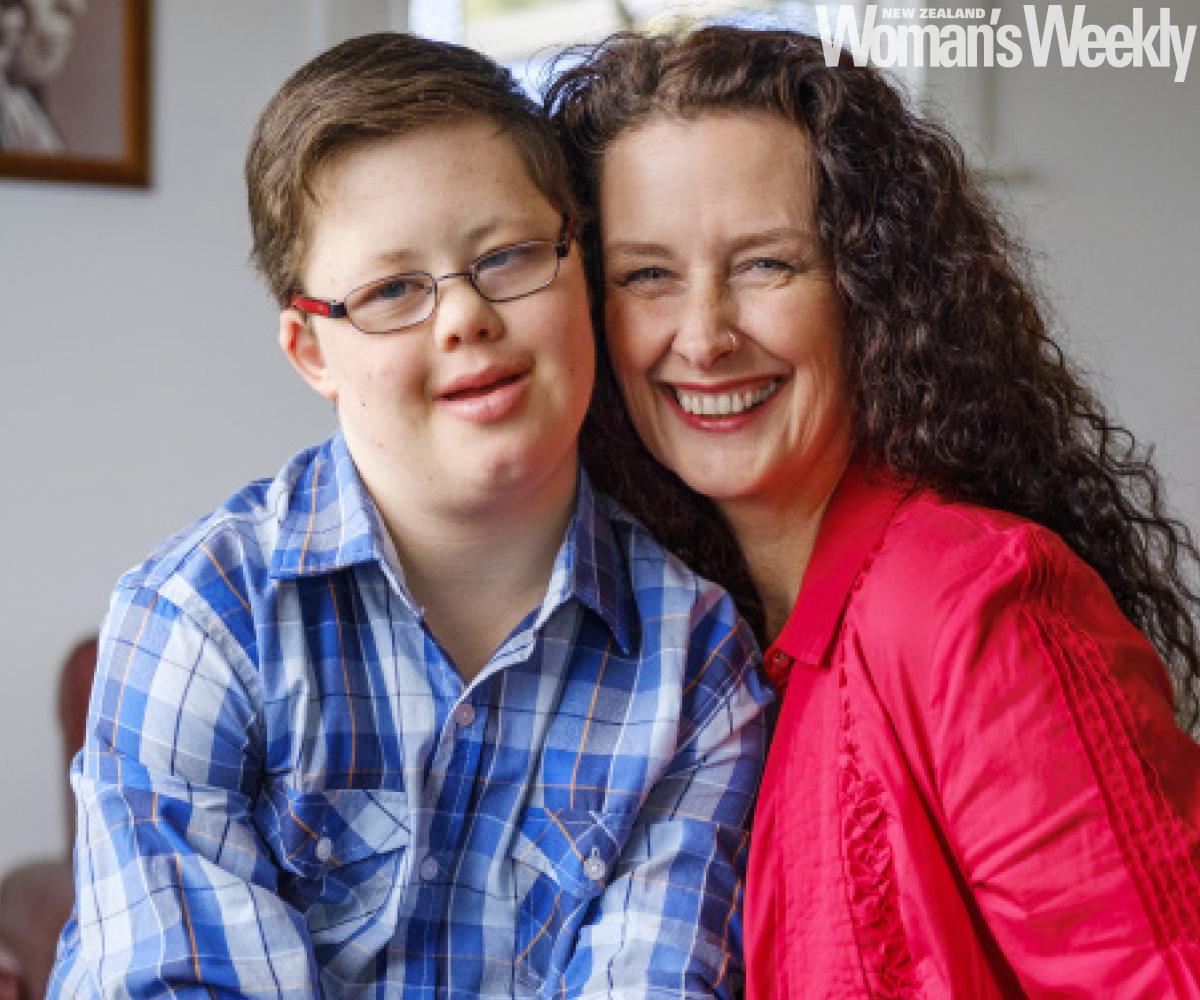What would you do to save your own life, again and again?
For Makena Houston, one of the 500 New Zealanders with cystic fibrosis, battling for survival hasn’t been a one-off dramatic event but rather a mandatory series of monotonous tasks, every single day.
Physiotherapy twice a day, an hour a time. Nebulisers, a breathing machine, every single day. Medication every time she has something to eat.
Makena, 26, can’t remember her mother, Tracey Richardson, sitting her down and having the “you have cystic fibrosis” chat with her. It was just the reality of their family life: both Makena and her older brother Cameron, 27, have cystic fibrosis – a genetic illness that is inherited when both parents carry the gene for it.
It is progressive and it is incurable.

“Over the course of your lifetime, it essentially scars up your lungs through continuous chest infections,” Tracey says.
“Cystic fibrosis is a nasty, horrible disease that basically marches on and all you’re trying to do is slow it down.”
Makena and Tracey both live in Hawke’s Bay but on the day of The Australian Women’s Weekly’s chat they’ve just finished yet another test at Auckland Hospital, a place that has become a second home over the past two decades.
Cystic fibrosis not only requires constant treatment but also constant monitoring.
In 2018, both Makena and Cameron underwent massive, life-extending surgeries in the form of a double-lung transplant.
This is a fairly common treatment for those with cystic fibrosis but it is not an easy process to undergo.
Firstly, organ transplants in New Zealand are hard to come by, because we have among the lowest rate of donations in the Western world. Secondly, there is a delicate balance between those who are deemed sick enough to need a new pair of lungs and those who are not.
In 2015, Makena had been put on the “inactive” list, which basically meant she wasn’t sick enough to qualify for the “active” list.
Then in early 2017, she had lost a lot of weight and had to have a tube put in her stomach so that she could start to receive overnight feeds. In August that year, Makena was classed as sick enough to be put on the waiting list. And wait she did.
Because of the nature of organ donation, there are no guarantees as to when or if the recipient will get one. Every day, Makena and her family would wait for the phone call that could change her life – and they had to be within two hours of Auckland Hospital the whole time, which meant both Makena and Tracey moving from their homes in Hawke’s Bay.
The entire time, the family were very aware that not everybody makes it through the waiting stage.
“It’s quite a close-knit community, so you know when someone has died,” Tracey says.
“You also know when someone gets that call, and there’s always joy when that happens. But as you wait – and one week becomes one month, which becomes six months – every day you’re getting up and going, ‘I hope it’s today,’ and every night you go to bed thinking, ‘Maybe it’ll be tomorrow.’ It’s endless… and quite grinding. I know people who have waited two years and so you see that and wonder if we’re going to have to wait two years.”

Makena takes a trip to the zoo with oxygen and a mobility scooter.
In the end, it was seven and a half months of “maybe it will be today” until one day it was.
A friend of Makena’s described the sense of stressful anticipation as like being in the final week of pregnancy, for seven and a half months.
It wasn’t at all smooth sailing once the surgery finally took place. Makena’s lung transplant went almost as badly as these things can go.
A textbook operation would see the patient in the intensive care unit (ICU) for about three days; Makena was in hospital for 10 weeks.
“I was saying to everyone, ‘I’ll see you tomorrow!’ I had no idea it could go as badly as it went for me.”
She was in an induced coma for two weeks and, at one stage, Tracey was told to prepare herself for the reality that Makena might not ever make it out of the coma.
But she did.

Makena in hospital after the transplant.
The recovery process, however, was long and brutal, including seven weeks spent in ICU.
“I suffered from a lot of anxiety,” Makena says.
“I was so unwell – I thought I was going to die. And because I’d been unconscious for two weeks, I’d lost all my muscle. The first time the physiotherapists got me sitting up in bed, and they swung my legs around and I realised I couldn’t even hold my head up, I was like… ‘What have I done? This is the worst mistake.’ I couldn’t move, I couldn’t even breathe at that point, I was still on the ventilator. I couldn’t move my hand off the bed. I couldn’t communicate because I had a tube down my throat – I could only mouth words. Mum became a very good lip reader.”
There were two hours a day – from 7pm to 9pm – when no visitors were allowed in the ICU and Makena was left unable to move or communicate with the nurses. This was the daily drill for five weeks, post-coma, until she was stable enough to leave ICU.
The reality of this, day-in, day-out, was something Makena and her mother opted to share on her Facebook page: Makena’s Journey to New Lungs.
The page had started back in 2017, as a way of updating Makena’s overseas friends and family, but took on a life of its own as more people became aware of her plight.
“At first I thought I’d leave it to the people I knew and then Mum convinced me to open it up to others, so they could learn about organ donation and lung transplants,” Makena says.
In their posts, they pulled no punches in how brutal, slow and at times demoralising the entire process was – both the exhausting wait for the lungs and then the painstaking road to recovery.
“She wanted it to be a record to look back on… to chronicle the highs and lows,” Tracey says.
Tracey also kept a diary of everything that happened, especially while Makena was in the coma.
“I just felt it would be pretty weird to wake up and know that two weeks of your life had disappeared, so I wrote everything down in the hopes that it would help her piece everything together, which I believe it has.”

Makena after climbing One Tree Hill, a rite of passage for lung transplant patients.
When her brother Cameron went through his double lung transplant later on in 2018, Makena was able to go back to the ICU and see the realities of a transplant from a very different perspective.
“She could see where she was in the hospital and where people were sitting in the waiting room, where you could go and get ice, that kind of thing,” says Tracey.
“As a patient, you don’t get that experience. You can see what’s on the roof above you, that’s it.”
Around the surgeries, Cameron and Makena had to be kept in what basically amounts to quarantine from each other, lest they affect the other’s health.
“So from April to September, I saw him twice,” Makena says, “but either one of us would have to wear a mask. He was quite unwell in that time, so they didn’t want me to be around him while he had infection.”
There were plenty of phone calls, and when Makena was particularly unwell in ICU, they made an exception and allowed Cameron to go in and see her, but he was all masked up. Now that both siblings have had transplants, it’s fine.
“We both have, in theory, healthy lungs now,” says Makena.

Makena with brother Cameron, who also has cystic fibrosis.
Tracey has four children – Makena and Cameron with her first husband and two more with second husband, Kevin, who has been the “unsung hero” by keeping everything running back at home while Tracey spent most of 2018 in Auckland to look after her two eldest children.
When asked how she has kept herself sane, she pauses.
“I don’t know if I have a ‘do this’answer,” she says.
“I think it comes down to philosophy. I worked out early on that I couldn’t fix this, so I don’t feel the responsibility to fix this. I just feel a responsibility – and a desire – to walk the path with them. It’s a privilege to walk beside them. However this ends, I’ll be there all the way with them.”
The cost of having a lung transplant
A lung transplant is not a long-term cure. It instead buys the patient time – and it always comes at a cost.
For Makena, the double-edged sword of her life-saving surgery has been particularly sharp; it resulted in her developing kidney failure.
“It’s somewhat typical that if you have massive surgery, your kidneys will just go, ‘Oh, I’m out of here,’ for a couple of days, weeks or months,” Tracey says.
“But [the doctors] had always said, ‘Don’t worry, don’t worry, they always come back,’ and so naively we believed that. As time marched on, it became obvious they weren’t coming back, so that’s been a dawning realisation. And as doctors always say to transplant patients: it’s not a cure, you’re switching one set of problems for another set of problems.”
Three days a week, Makena goes into dialysis for five hours at a time. This is her reality until she is able to find a kidney match with the same blood type as her – Tracey was in line to donate a kidney, but because of how badly Makena’s system reacted to the lung transplant, the doctors won’t risk her taking on a kidney with a different blood type.
It’s a setback, absolutely, and she’s currently in the process of trying to track down an O positive or negative kidney. It has to be a live donor – the waiting list for a kidney from a deceased person in New Zealand is years long, due to our high rates of kidney disease.
Makena’s public Facebook page has been updated to reflect this new challenge: Makena’s Journey to New Lungs and Search for a Kidney.
Even though her situation is not what the doctor ordered – or predicted – Makena is making the most of her new lungs. Even though the recovery process has been steep, the difference between her life pre- and post-transplant is poles apart.
“My lung function is now around 45 per cent, which is quite low, but it’s just so different to what I was like before,” Makena says.
“I was on oxygen, I was on a BiPAP machine overnight, I couldn’t really walk more than 100m without getting short of breath, so I couldn’t really do anything. I was sleeping all day. Now, even though I’m still considered quite limited in my lung function, my life is just completely different. And yes, the kidney problems are really annoying, but I’d rather have it this way than what it was before.”
The brutal reality is that the average lifespan of a new pair of lungs for a cystic fibrosis patient is five years.
“Some people make it to 15, some make it to 10. And we know people who didn’t make it to 12 weeks,” Makena says.
“So you just don’t know. For me, the scariest part is that the decline happens fast, from what we’ve heard from other people. You can be fine and then two weeks later, dead.”
“If your body starts rejecting your organs, it becomes an internal war,” Tracey says.
“They can slow it down, but you’re not going to win. And being on immune suppressants opens you up to other things as well; people on them have much higher rates of cancer.”
“If you just viewed all the problems, you might say, ‘I’m not going to do it.’ But pre-transplant Makena had a 100 per cent chance of dying from cystic fibrosis, probably within six months. This is a chance to live.”
Even with three days a week mostly dedicated to dialysis, Makena is not wasting any time with this chance.
In the year since her surgery, she’s not only started her own business – Makena Houston Communications, a social media consultancy based in Hawke’s Bay – but she’s also made good on one of her long-term goals and starred in the local production of Mamma Mia! She started singing lessons when she was five but Tracey is convinced her daughter “came out singing”.
“The way to entertain Makena when she was younger was to give her a mirror and a hairbrush as a microphone.”
During her school years she was in the choir and performed in shows, but from the age of 15 onwards, she couldn’t hold the notes any more, due to the fluid in her lungs.
“My sound wasn’t what it used to be, so I gave up.”
“It was so sad, because singing gave her so much joy and filled her with energy; it filled the house with this beautiful sound,” Tracey recalls.
“Cystic fibrosis basically stole the singing.”
But she’s just completed a run of performances and the joy singing gives her has returned.
“I feel like what I imagine sporty people feel like once they’ve done their sports,” Makena says.
“It’s the icing on the cake, it’s not the cake,” Tracey says of Makena’s role in Mamma Mia!
“It’s the fact that she can sing again. It’s just beautiful. She’s just glowing.”
Organ donating in New Zealand
In 2018, there were 62 organ donors – one donor can save the lives of up to 10 people through organ and tissue donation, so 192 people were able to receive heart, lung, liver, kidney or pancreas transplants.
Ticking “donor” on your driver’s licence is only an indication of your wishes – you still need to have a conversation with your loved ones.
If you are ever in a situation where donation is possible, doctors will ask your family if they know your wishes. The process is respectful and doesn’t interfere with funerals – you can still have an open casket or have the body taken back to a home or marae.
Anyone can be a donor; there are very few health conditions that prevent donation. Doctors will assess the organs at the time of donation and organs will only be removed if they are a match for someone on the transplant waiting list.
For more information, visit donor.co.nz.

For more great reads, pick up the latest issue of The Australian Women’s Weekly, on sale now.




